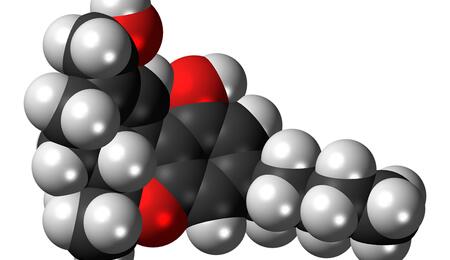Delta-8 THC: Health Authorities Raise Alarm as Hospitalizations Climb Over 100

Dubbed the "superior version of THC," Delta-8 THC became all the rage within the last year. In many areas, sales of Delta-8 products fared better than some of the most popular CBD goodies. But is it just a passing fad? We may have an answer now as more hospitalizations are linked with the controversial cannabidiol.
Delta-8 overtook the national stage during the summer, and cases of intoxication have been reported ever since. Local poison control centers have been receiving hundreds of calls, enough that a new code had to be added, especially for Delta-8 intoxication.
As the number of hospitalization due to Delta-8 product intoxication rose above 100, the Centers for Disease Control and Prevention (CDC) issued a public health warning on September 14th. CDC warned about something a lot of people already knew, that Delta-8 products are handled with negligence and are being mislabeled.
The FDA has also warned that chemicals used in the manufacture of Delta-8 THC products could be contaminated with harmful substances. While there hasn't been a mention of specific products consumers should avoid, people who live in states where marijuana is legal, are advised to make purchases of Delta-8 THC only via licensed shops.
Fortunately, there haven't been any fatalities from Delta-8 intoxication so far. But there have been intoxication reports that the first cases involving children who got into gummies or other edibles containing Delta-8 were registered during the summer months.
Toxicologists explain intoxication from Delta-8 THC happens as people don't know what exactly they're buying. The symptoms are similar to those of a regular edible. There are heart palpitations, and patients get lethargic, with movement also being affected. Later on, the person feels more sedated and can have trouble breathing.
In both legal states and states where cannabis for recreational use is still against the law, Delta-8 THC has boosted psychoactive products offering. Market sales have soared over the last year, as the Delta-8 products appear cheaper to manufacture, in part because it's also untaxed.
Delta-8 THC is a cousin of Delta-9 THC. The term THC commonly refers to the Delta-9-THC isomer, the principal mind-altering chemical contained in marijuana. While there is not much difference in the chemical structure of the two types of THC, there is in how they're derived. Delta-9 is extracted from raw marijuana plants, while Delta-8 is gleaned from hemp, the non-psychoactive variety of the cannabis plant.
Like Delta-9 THC, Delta-8 also causes high and euphoria, although all effects are supposed to be milder. While this may "lure" users who want to avoid too much "high," a lot of things about Delta-8 remain unknown. It is not known to experts what side effects and risks may follow from habitual ingesting of Delta-8.
A cannabinoid at issue, Delta-8 lives in a legal gray area. Extracted from hemp, federal regulations that apply to Delta-9 THC do not apply for Delta-8. From a legal perspective, the two are just enough different chemicals.
The 2018 Farm Bill labeled legal all hemp with less than 0.3 percent delta-9 THC, and although unwittingly, this created the legal loophole for Delta-8 THC to show up. As long as Delta-8 is extracted from hemp, it doesn't matter how much of it is concentrated in a particular product. But in hemp plants, this cannabinoid is only found in trace amounts. To get more Delta-8 THC, producers must rely on synthetical conversion of CBD and also Delta-9 THC, which is not permitted by law.
States appear willing to take an extra step to regulate Delta-8 and seal down any legal loopholes. Some US states are due to begin revising the very definition of marijuana. Adding new categories of marijuana-like products may be necessary. FDA is likely to follow up with guidance for state officials on how to control any new marijuana-like compounds.
Oklahoma and Alabama are two states that consider legally redefining marijuana so that in addition to the well-known Delta-9 THC, Delta-8 THC and Delta-10 THC are also encompassed. The Washington State Liquor and Cannabis Board has issued a policy statement that allows delta-8 THC sourced from licensed cannabis, but not from unlicensed hemp. The list of states addressing the Delta-8 compound is likely to grow over the next months.
It may take some time until regulations are polished. For users who suspect specific cannabis products, it's easy to check if an item is good-for-purchase. The packaging of any cannabis edible should showcase information on the ingredients used in its preparation. The product should clearly show it contains marijuana. The dosage of THC or CBD concentrated in it, is supposed to be on the label. If it's an edible product, the information displayed on the package should also inform how the cannabinoid was infused, nutrition and allergy information, and contact information to the product provider.



